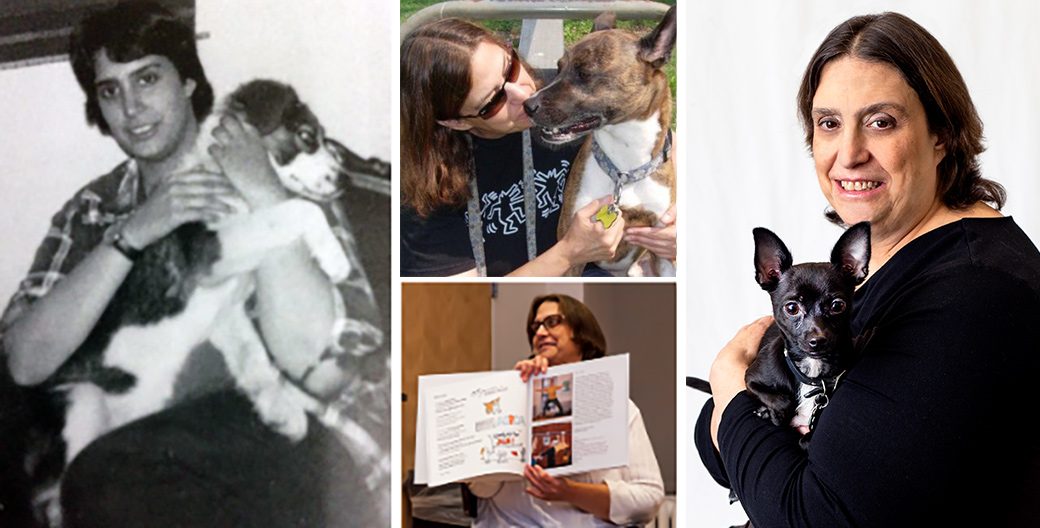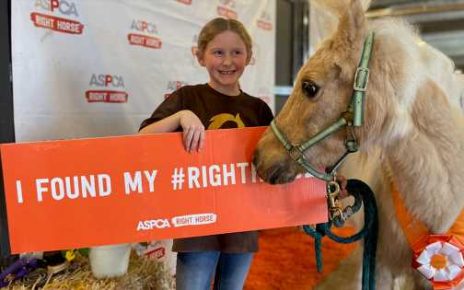1040w-julie-morris.jpg


For those of us in the animal welfare community, the news of Julie Morris’s death is nothing short of devastating.
For more than three decades—starting as a shelter attendant at the Humane Society of Huron Valley in 1978—Julie served as one of our most cherished and visionary leaders, playing a pivotal role in some of the most important developments in the field of animal welfare.
Julie, most recently Senior Vice President of Strategic Animal Welfare Partnerships at the ASPCA, was also an educator, a beloved colleague and a loyal and compassionate friend. Through her generous mentorship, she not only taught people about critical issues in animal welfare, but also exemplified how to cultivate genuine and meaningful relationships.
Julie encouraged and secured a range of support, including expertise, resources and financial assistance, that made a difference in the lives and operations of countless people and organizations, and there’s no doubt her level of personal dedication inspired even more lifesaving work.
Fifteen years ago in New York City, Julie brought together key players—Animal Care Centers of New York City (ACC), the Mayor’s Alliance for NYC’s Animals, Maddie’s Fund, and the ASPCA—to build NYC’s animal welfare community and improve ACC’s live release rate. Julie provided constant stewardship over the years, and today, ACC’s live release rate is more than 94 percent, making NYC one of the most humane communities in the country.
Julie had a knack for spotting talent and potential in people and shelters, as well as a unique ability to collaborate and forge new alliances that opened doors and created opportunities for people and animals.
Early on, Julie championed the work of the ASPCA Spay/Neuter Alliance (ASNA). Formerly Humane Alliance, the organization was established in 1994 to train veterinarians across the country in high-quality, high-volume spay/neuter services. Julie’s support of ASNA, part of the ASPCA since 2015, was critical to its ability to impact pets both before and after we joined forces with them. Today, ASNA has 15 licensed veterinarians and 40 medical support staff who have performed hundreds of thousands of spay/neuter operations and who have been described as “setting the gold standard” across the nation by those who have trained with them.
Julie also had the ability to identify organizations with great potential for community impact, such as Austin-based Emancipet, which makes veterinary care affordable and accessible to pet owners in communities across the nation. She ensured those groups had access to the expertise and resources of the ASPCA, so their work was supported and their growth was strong and steady.
“In the last decade, there has not been a single really tough decision I had to make at Emancipet where I didn’t call Julie for her input. She was the best mentor I could have asked for as a young CEO. And as I grew and Emancipet grew, she was right there with us, pushing us along and encouraging that growth,” recalls Amy Mills, CEO of Emancipet.
Amy’s sentiments are echoed by others throughout the animal welfare field, including Lori Weise, founder of Downtown Dog (DDR) in Los Angeles, who says, “I will forever be grateful for the instrumental role Julie played in making it possible for DDR to purchase a kennel property so that our programs could continue to run as well as new programs could be created. She saw something in me that I did not see in myself.”
In 2005, Julie led the ASPCA’s outreach to shelters affected by Hurricane Katrina in 2005. “Katrina was a wake-up call,” Julie said in a 2016 profile in Animal Sheltering. “It changed and improved the future for animals during disasters, and there’s been a lot of growth since then.”
Julie’s hands-on and trusting relationship with shelters and rescue organizations around the country was a driving force behind the ASPCA Partnership program, as well as the ASPCA Relocation program, which has since become the largest relocation program in history.
No matter what was achieved or what new obstacle was unearthed, Julie remained committed to improving and evolving the work. “We’re thinking outside of the box to find positive outcomes for at-risk animals, but even as we succeed, the challenges are constantly changing,” she said.
Julie championed innovations that have been key to saving lives in our field, such as supporting the specialty practice of shelter medicine and elevating its position in the sheltering and veterinary communities. She was among the first to advocate the use of data and measurement as essential to gauging the impact of programs and improving the outcome for animals, and she was a founding member of the National Council on Pet Population, where some of the first essential research for the field was envisioned, funded and distributed.
“Julie was an incredible mentor who generously shared her vast knowledge of animal welfare,” says Matt Bershadker, President and CEO of the ASPCA. “She was highly regarded by so many, and her expansive and deep relationships helped the ASPCA develop and launch some of our most important lifesaving programs. She pioneered many essential fields, from shelter medicine to data mining, that are critical to our work to save and protect animals across the country. I am grateful to Julie for these many contributions, her kindness and her dedication to animals. Her impact will always be felt at the ASPCA and throughout the animal welfare community.”
Before joining the ASPCA in 1990, Julie was Executive Director of the Humane Society of Huron Valley in Ann Arbor, Michigan, and Director of Operations of the Michigan Humane Society in Detroit. She served as a consultant and board member for numerous animal welfare organizations. She held degrees in zoology and secondary education from Michigan State University and Eastern Michigan University, and she was a native of New York City.
Julie devoted her life to making the world a better place for animals and connecting compassionate people who could elevate that work through their alliance and make a much bigger impact. That impact is Julie’s legacy, and she will forever be a symbol of it.
Source: Read Full Article



